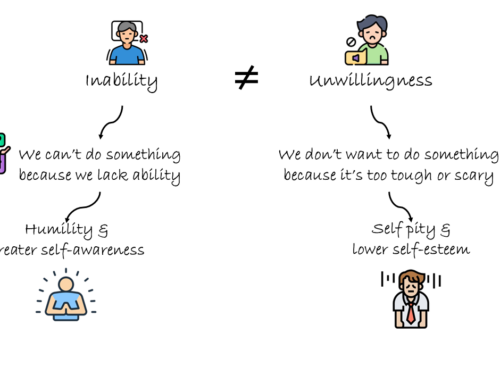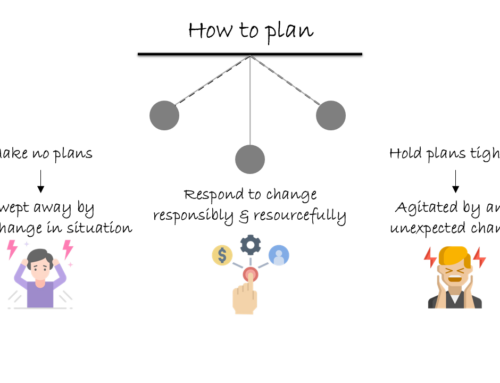Three kinds of negative thinking — and why they all aren’t undesirable – Nowadays, negative thinking is often criticized. However, what that term means is frequently left unspecified. Broadly, it can encompass three things.
Thinking about negative realities: Such thinking can decrease our tendency to complain. If we have seen and contemplated a starving child rummaging through garbage for food, we are less likely to gripe about how our dessert tastes. Dwelling on negative realities can keep us aware of twin truths: the world is filled with so many distresses, and we are so fortunate to be free from many of them. This awareness can make us less fretful and more grateful.
Thinking about negative possibilities: Pondering how things may go wrong helps us prepare for emergencies. If we have considered the possibility of our laptop crashing, we are more likely to take regular backup of our data, thus avoiding much trouble when it crashes. Many negative possibilities may never happen, but some will. And when they happen, our having thought about them beforehand will enable us to minimize any damage.
Having a negative mentality: Herein, we tend to think constantly about negative realities or negative possibilities without channeling those thoughts constructively. Due to or apart from these negative contemplations, we habitually gravitate toward negative thoughts about loneliness, inferiority, self-pity, frustration, resentment, leaving us discouraged, distressed, depressed. Just seeing someone happy makes us unhappy. Our thoughts make us miserable and we make others miserable. Such a compulsive negative mentality is reproached in the Bhagavad-gita (18.35).
Thinking about negative realities and possibilities, when done as specific, purpose-driven, time-bound thought-exercises, can be constructive. In contrast, a negative mentality is a default dwelling and drowning in negativity — it is usually destructive.
One-sentence summary:
Not all negative thinking is undesirable — thinking about negative realities can foster gratefulness; thinking about negative possibilities can increase preparedness; having a negative mentality can breed unhappiness.
Think it over:
- What are the three broad meanings of the term ‘negative thinking’?
- Which kinds of negative thinking can be helpful? How?
- Which kinds of negative thinking can be harmful? How?
***
18.35: And that determination which cannot go beyond dreaming, fearfulness, lamentation, moroseness and illusion – such unintelligent determination, O son of Prutha, is in the mode of darkness.
To know more about this verse, please click on the image
Explanation of article:
Podcast:






How to deal with negative mentality? Can i refer some of your previous articles. Please let me know.
At the same time, very much grateful for having heard this wonderful wisdom from you. Looking forward to learn more. Thank you very much pr.
You can find a lot of material here:
https://www.thespiritualscientist.com/?s=positive+thinking
There’s a full course on my book: ENERGY – your sutra for positive thinking
Negative thinking negete the miseries.